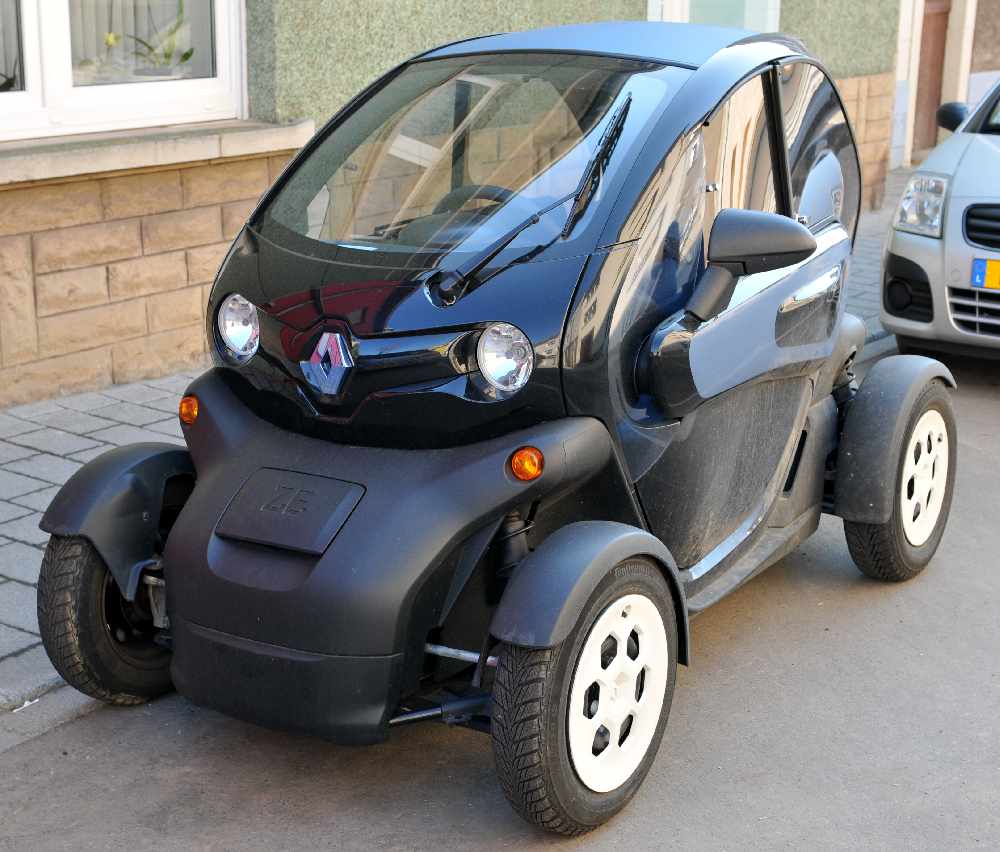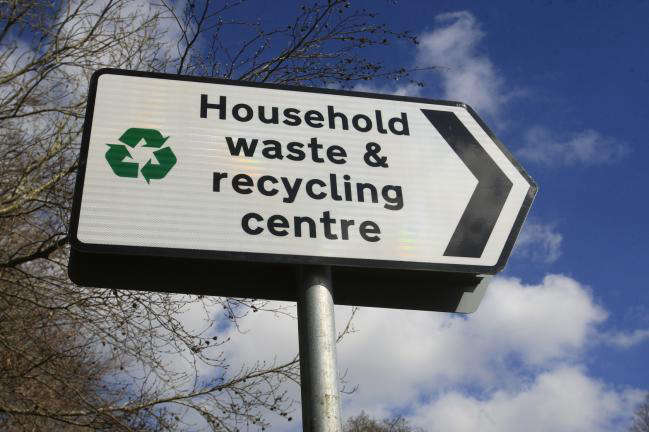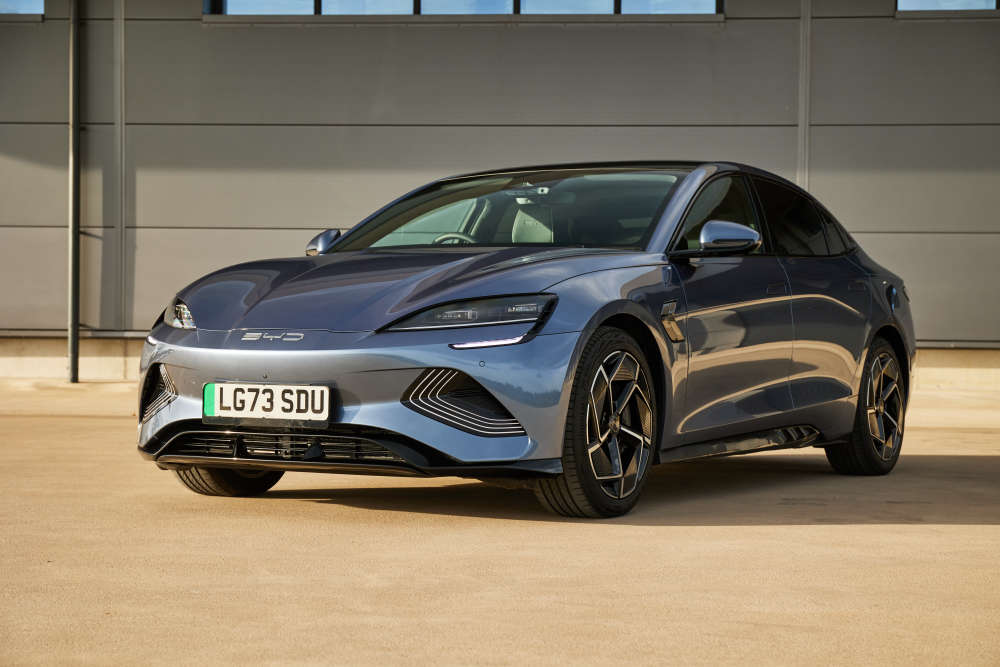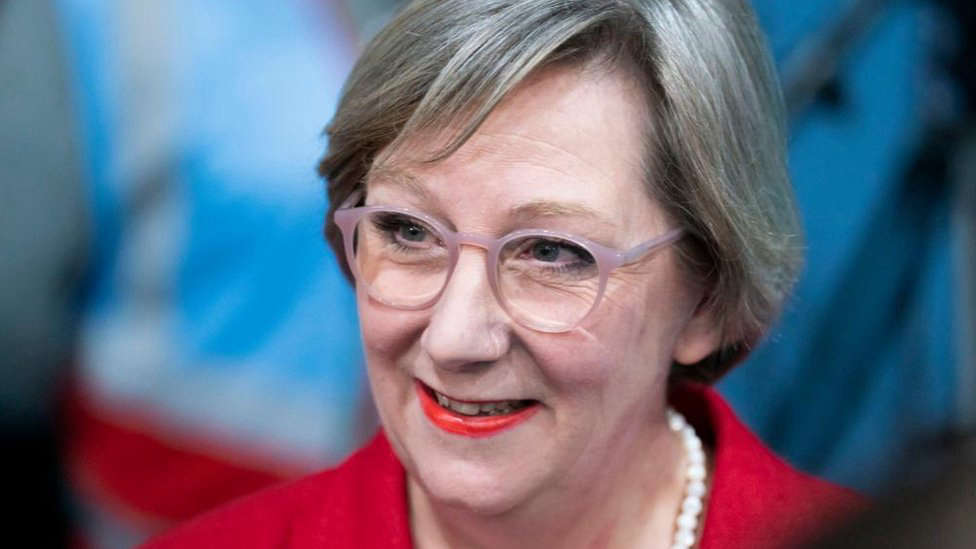
12 million drivers are considering swapping to an electric vehicle in the next two years, potentially saving £8 billion in fuel costs.
Electric car owners save an average of £329 a year, compared to the cost of running a petrol or diesel vehicle, based on typical annual mileage.
EVs have become increasingly popular among motorists, and their market share is expected to grow in the coming years as the Government bans sales of new diesel, petrol and hybrid vehicles from 2035.
Although switching to an EV and charging it at home increases energy bills, it works out cheaper than filling up on petrol or diesel, according to the analysis.
Electric car drivers say charging their vehicle at home adds £30.90 a month, the equivalent of £370 a year, to their energy bills. Meanwhile their petrol and diesel-driving counterparts say they spend £74.86 on fuel a month on average, or £898 a year. When adjusted for average mileage, electric vehicle owners save £27.48 a month compared to fuel, equal to £329 a year.
To ensure EV drivers are not paying over the odds to charge their car, owners should ensure they are on one of the cheapest fixed energy deals available on the market. Consumers on Standard Variable Tariffs who are charging their electric cars at home could save up to £7.69 a month — £92 a year — by ensuring they are on the best energy deal.
Charging at home is usually cheapest for electric vehicle owners. Motorway charging points are capable of delivering enough electricity to drive 100 miles in just half an hour — but it will cost about £6.50, compared to £4.15 on average with a 7KW wall charger at home.
Some 4.3 million drivers (11%) say they will buy an electric vehicle in the next two years, and an additional 7.6 million motorists (19%) are considering purchasing one in that time.
Registrations of new EVs also reached a market share of 4.6% in March — the highest proportion of sales recorded in the UK for battery powered cars.
Cost per mile
Uswitch.com analysed the prices of new EVs and their cost per mile to calculate which cars provide the biggest cost savings over an average eight-year warranty period. The compact Renault Twizy came out on top, costing only 1.61 pence per mile, and a total of £11,745 including the purchase price after eight years.
10 of the best-value electric vehicles[4]
|
Model |
Price |
Range (miles) |
Cost per mile (pence) |
Overall cost after eight years |
|
Renault Twizy |
£10,995 |
62 |
1.61 |
£11,745.63 |
|
Skoda Citigo e iv |
£17,455 |
170 |
3.54 |
£19,106.54 |
|
SEAT Mii |
£19,800 |
160 |
3.76 |
£21,554.76 |
|
Citroen C-Zero |
£20,520 |
93 |
2.81 |
£21,832.58 |
|
Smart fortwo |
£20,195 |
78 |
3.69 |
£21,916.50 |
|
Smart fourfour |
£20,680 |
75.5 |
3.81 |
£22,458.51 |
|
DS Automobiles DS 3 Hatchback |
£22,120 |
180 |
4.54 |
£24,239.27 |
|
Volkswagen e-Up! |
£23,555 |
159 |
3.32 |
£25,104.87 |
|
Mini Hatch |
£24,900 |
145 |
3.68 |
£26,615.30 |
|
MG Mg Zs |
£25,495 |
163 |
4.47 |
£27,577.87 |
Source: Uswitch.com. Prices correct as of 25/08/20
Tesla is one of the best-known EV brands and its cars boast some of the best ranges, but they are among the most expensive vehicles to own.
10 of the most expensive EVs
|
Model |
Price |
Range |
Cost per mile (pence) |
Overall cost after eight years |
|
Kia Soul |
£34,295 |
280 |
3.7 |
£36,038.86 |
|
BMW i3 |
£36,025 |
185 |
3.4 |
£37,592.12 |
|
Tesla Model 3 |
£40,490 |
220 |
3.7 |
£42,223.95 |
|
Audi e-tron |
60,650 |
193 |
6.0 |
£63,464.57 |
|
Mercedes EQC |
£64,925 |
259 |
5.1 |
£67,281.57 |
|
Jaguar I-Pace |
£65,195 |
292 |
5.0 |
£67,546.52 |
|
Tesla Model s |
£77,980 |
379 |
4.3 |
£79,993.03 |
|
Audi e-tron Sportback |
80,650 |
241 |
6.4 |
£83,657.44 |
|
Tesla Model X |
£82,980 |
314 |
5.2 |
£85,409.74 |
|
Porsche Taycan |
£83,367 |
188 |
6.9 |
£86,581.08 |
Source: Uswitch.com. Prices correct as of 25/08/20
Sarah Broomfield, energy expert at Uswitch.com, comments: “Electric vehicles are becoming increasingly popular, and 12 million drivers could soon be swapping their petrol or diesel car for a more environmentally friendly one.
“The good news for these drivers is that EVs come with an additional financial benefit too — they cost far less to fuel than a petrol or diesel car.
“However, charging costs can vary depending on your energy tariff. If you are still on your supplier’s Standard Variable Tariff, charging your car could cost an additional £7.69 a month unless you switch to a more competitive fixed-term deal.”


 Revised opening days at Flintshire Household Recycling Centres
Revised opening days at Flintshire Household Recycling Centres
 Funding secured for North East Wales Archive
Funding secured for North East Wales Archive
 Fearless fundraisers are about to take on their biggest ever feat for a children’s charity
Fearless fundraisers are about to take on their biggest ever feat for a children’s charity
 North West rail improvements planned this May Bank Holiday
North West rail improvements planned this May Bank Holiday
 Cheshire firefighters to deliver vital vehicles and equipment for Ukrainian firefighters
Cheshire firefighters to deliver vital vehicles and equipment for Ukrainian firefighters
 Chester and Wirral Football League - Weekend Round Up
Chester and Wirral Football League - Weekend Round Up
 Four weeks to go to Council’s first electric vehicle awareness event
Four weeks to go to Council’s first electric vehicle awareness event
 Chester shopping scene ranked in the top 10 best shopping destinations in the country
Chester shopping scene ranked in the top 10 best shopping destinations in the country
 Appeal for information following Chester car thefts
Appeal for information following Chester car thefts
 Police appeal to trace wanted man from Flintshire
Police appeal to trace wanted man from Flintshire
 The Grosvenor Park dig is back
The Grosvenor Park dig is back
 Cheshire Constabulary dispels myth on ‘typical’ stalker
Cheshire Constabulary dispels myth on ‘typical’ stalker
 North Wales Police - Recruitment Open Day
North Wales Police - Recruitment Open Day
 Calling all Flintshire Tradespeople
Calling all Flintshire Tradespeople
 MATCH REPORT - CHESTER FC 0 - 0 DARLINGTON
MATCH REPORT - CHESTER FC 0 - 0 DARLINGTON
 MATCH PREVIEW - CHESTER FC v DARLINGTON
MATCH PREVIEW - CHESTER FC v DARLINGTON
 CHESTER FC STATEMENT
CHESTER FC STATEMENT
 MATCH REPORT: ELLESMERE PORT TOWN 3 - 4 CHESTER WOMEN
MATCH REPORT: ELLESMERE PORT TOWN 3 - 4 CHESTER WOMEN
 People in Chester are invited to join a singing celebration to mark Global Intergenerational Week
People in Chester are invited to join a singing celebration to mark Global Intergenerational Week
 St George returns to Chester on Tuesday 23rd April
St George returns to Chester on Tuesday 23rd April